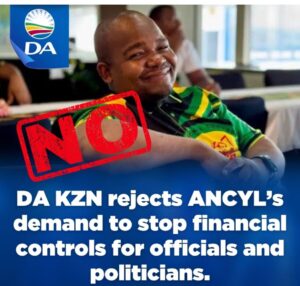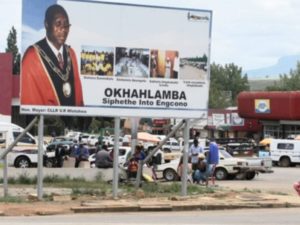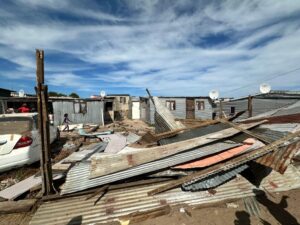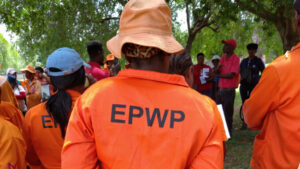As a young woman, this issue is deeply personal to me, as it is for countless others. I have yet to meet a woman who has not been impacted by some form of abuse—whether emotional, verbal, physical, or psychological. Gender-based Violence (GBV) is impossible to hide from, if it’s not a newspaper headline, it’s a top story online or a soundbite on the radio again. GBV has South Africans in a choke-hold.
While the statistics tell part of the story, we cannot become desensitized. Every three hours, a woman is murdered in South Africa. That means eleven women are killed every day – and 74 each week.
In KwaZulu-Natal (KZN) GBV figures continue to rise. According to the recently released 2024 Second Quarter Crime Statistics, Inanda and Umlazi police stations lead the nation in reported rape cases. KZN is second to Gauteng in the number of rapes on educational premises. These are children that are being sexually assaulted. The fact is that there should be no such category of offence to quote. The sexual assault of even one child is a blight on our humanity as a country.
Digging deeper into GBV root causes, inequality, rooted in a patriarchal system, lies at the heart of this crisis. Patriarchy perpetuates the belief that men hold dominion over women, and it manifests in both overt and insidious ways. It is so insidious that it is the reason why women are still told to change their behaviour, dress differently, or avoid certain places to “protect themselves.” As if women are the problem.
The glaring question is: Why must women take responsibility for how grown men conduct themselves? It is time to say enough.
The causes of GBV are rooted in the behaviour of abusive men and this is where the interventions must take place. Stop telling women not to wear short dresses. Our attire is not your business and where your eyes, and your hands go is your responsibility.
This is why the programme mentioned by KZN Premier Thami Ntuli, which addresses toxic masculinity, is so critical. The “No Excuse” campaign is driven by men in partnership with South African Breweries, and is a powerful step in confronting these harmful behaviours. This campaign challenges the psyche of men and calls on them to take accountability. Because to truly combat this crisis, we need men to be part of the solution – not the problem.
Traditional leaders also play a role in leading our communities and this is another programme being run by KZN. Many are stepping up to challenge outdated cultural norms and educate their constituencies on the importance of gender equality. By integrating these values into the fabric of our communities, we can begin to rebuild the moral fabric of society that seems to have unravelled.
But awareness and education alone are not enough. Action must follow. That is why the work of the Provincial GBV Council and rapid response teams, mentioned by the Premier, across more than 300 KZN wards is so important. These rapid response teams provide urgent responses to GBV at community level and must be rolled out as swiftly as possible within more of our communities.
But we also have to break the stigma around reporting GBV or these reporting mechanisms will serve a hollow purpose. Unfortunately, the need is far greater than the resources currently available.
Shelters are a lifeline for victims, offering safety and support. In KZN, 2 885 GBV victims accessed shelters last year. While this is a step forward, it is not enough and government must expand these safe spaces and ensure that no woman is ever turned away due to a lack of capacity.
Economic empowerment is another critical piece of the puzzle. When women have access to education, employment, and resources, they are less vulnerable to abuse and better equipped to escape it.
Economic independence isn’t just about survival – it’s about dignity, choice, and the power to break free from cycles of violence, including generational violence. Even global efforts to combat climate change recognize that empowering women leads to more resilient communities.
Despite these initiatives, systemic failures remain. The absence of forensic laboratories in KZN has been a significant barrier to justice. Victims wait years for evidence to be processed, allowing perpetrators to walk free. The Premier’s commitment to fast-track the establishment of a forensic lab is a long-overdue step that we must now ensure is delivered.
Confronting the grim reality of KZN’s police stations, Inanda, Umlazi, and Plessislaer rank among the highest nationally for reported rape cases, with the latter seeing an alarming 64.5% increase. These stations should be safe havens for victims. Instead, they have become symbols of government’s failure to act on behalf of women and children. Government must demand more from law enforcement agencies and ensure that perpetrators face swift and decisive justice.
GBV is not a seasonal issue that we should only be concerned about for 16 days each year. While campaigns such as 16 Days of Activism are vital, the fight against GBV must be relentless – 365 days a year. This is a societal problem, and it belongs to all of us. Each one of us has a role to play, whether it means being a whistle-blower in our communities, offering support to victims, or confronting abuse within our own families.
Recently, a young girl in Umlazi was raped and left for dead on her way home from school. In Inanda, a mother of three was beaten to death by her partner in front of her children. And in Pietermaritzburg, a woman’s pleas for protection were ignored, and she was murdered just days after filing a protection order. These are not isolated incidents—they are the reality of life for too many women in KZN.
This is why the 24/7 National GBV Call Centre is so important. It provides a lifeline for victims, offering immediate assistance and connecting them to critical resources. It must be ensured that those who answer these calls have the training, empathy, and resources to make a real difference.
The men in our province have a crucial role to play in the fight against GBV. They must reflect on their actions, their words and the culture they perpetuate. The time for excuses is over and men must also take a stand against violence and hold each other accountable.
The resilience of KZN’s women is extraordinary, but they should not have to endure this burden alone. Together as a society we must demand change, push for justice, and build a society where no woman has to live in fear.
KZN has a long road ahead but there is power in collective action. We must unite as a province, as communities, and as individuals to fight this scourge with everything we have. The lives of our mothers, daughters, and sisters depend on it. We cannot simply talk about change – we must demand it and make it happen.









